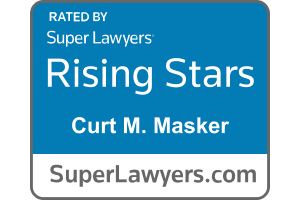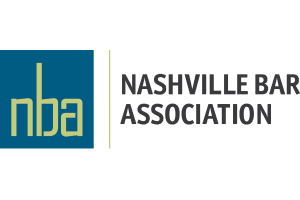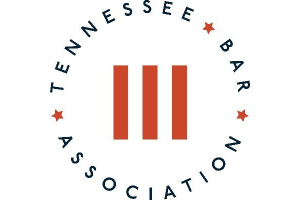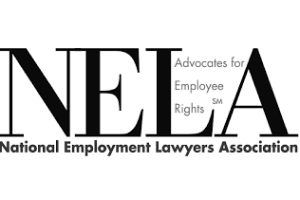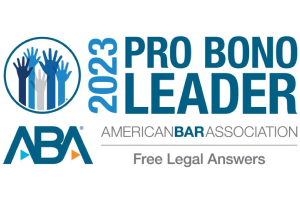for Workers
Stages of an Employment Lawsuit
Employment cases generally follow the 7 steps outlined below. Keep in mind, this is a simplification of a complex process and no two cases are exactly alike. Some cases settle before a lawsuit is filed while others need to be tried in front of a judge and/or jury.
1. Initial Consultation
If you were fired and your intuition is telling you it was for an unlawful reason, you should immediately contact an employment lawyer. Do not wait!
During the initial consultation you get to tell your story. If the lawyer agrees that your case has legal merit, and you determine the lawyer is worthy of handling your case, then you can hire the lawyer by signing a fee agreement that details the lawyer’s scope of representation.
2. Filing of Lawsuit, Service, and Initial Case Management Conference
At this early stage, your lawyer will draft a “complaint,” which briefly describes the facts of your case, the laws broken, and the damages you wish to recover. You are now the “Plaintiff” as you are the party who is initiating the lawsuit.
Your lawyer then serves the complaint and some other court documents (collectively referred to as “process”) on the employer (now the “Defendant”). This is known as “service of process.” The company has about 30 days to answer the complaint. It is worth noting that lawyers often give each other extra time to respond to requests as a professional courtesy. However, instead of answering, the company may file a motion to dismiss. This motion usually fails and your lawyer will handle any such early motions.
In federal court, the judge schedules an initial case management conference. This is a meeting between the lawyers and the judge in which the important dates and deadlines for your case are determined. You will not be attending any such conferences. After the first conference, the court issues a Case Management Order. This serves as the roadmap for your lawsuit and your lawyer should provide you with a copy.
3. Discovery
Discovery is the very important fact-finding stage of a lawsuit. Discovery has two main components: written discovery and depositions.
A. Written discovery
The written component of discovery includes your lawyer requesting specific documents from the employer such as e-mails, a copy of your personnel file, text messages, company handbooks and policies, and anything else that may be relevant to your case. These are called “requests for production of documents.”
Your lawyer will also draft written questions called interrogatories. These are sent to the company’s lawyer and they must be answered in writing and verified under oath. Your lawyer will complete much of written discovery without contacting you, but he or she may contact you to gather more information or seek clarification.
B. Depositions
Depositions are important oral testimony. During a deposition the so-called “deponent” is asked questions under oath and his or her answers can be used at trial, especially if it can be shown he or she lied. A court reporter (stenographer) writes down everything that is said.
Your lawyer will depose the key decision-makers who decided to terminate you, and may depose others with knowledge of the facts and circumstances of your case (e.g., human resources). Your attendance at these particular depositions is entirely optional.
The company’s lawyer will take your deposition at some point during discovery (almost always after written discovery). This is not optional. But do not be intimidated, your lawyer will go over the process to demystify it. Your job will be simple: tell the truth and listen to your lawyer.
4. Motion for Summary Judgment
This is a motion in which one party asks the court to toss out your case before it reaches a jury. Usually this is filed by the employer and it argues that no factual disputes need to be resolved by the jury and, based on the law, the company should win the case.
This is an important motion. A good employment lawyer will spend at least a week drafting a response to a motion for summary judgment. It is critical you have a lawyer who is an ace legal writer. Being fluent in employment law is absolutely necessary. During this stage of the case it is crucial you respond to your attorney’s communications immediately.
5. Settlement Discussions
Over 95% of employment cases settle before or at trial. Do not be fooled by TV lawyers who spend all of their time advertising and then refer cases to real lawyers (or have young associates and paralegals do all of their legal work), “settlement” is not the result of lazy lawyering. Often, lawsuits are risky for both parties and settlement can be a smart strategy (otherwise one or both parties would not agree to settle).
Statistically, odds are high that your case will settle before trial. Settlement discussions can occur at any time, but serious settlement talks frequently occur after discovery and after the filing of a motion for summary judgment. Mediation is a key tool lawyers use to attempt to settle disputes. To learn the basics of mediation in employment cases, see our article on the subject here.
If your case does not settle, then the case moves forward to trial.
6. Trial
This is an opportunity for each side to present their case to a jury. Employment law trials usually last 2-3 days, although some can take over a week. Each side presents their case, after which each side gives a closing argument. The judge then instructs the jury on the law (what laws apply and what each law actually means).
During deliberations, the jury decides questions of fact (what version of events should be believed). The jury then applies these facts to the law (as given to them by the judge). The jury’s verdict ultimately decides who wins.
In some cases involving very complex facts or nuanced areas of law, the parties may agree to have the judge decide both the facts and law. This is referred to as a bench trial.
7. Appeals
If the trial judge commits a reversible error (e.g., gives the jury a misleading instruction), the losing party may appeal to an appellate court to have the issue fixed. In Tennessee, the federal appeals court is the Sixth Circuit Court of Appeals. Appeals can take over a year and can increase costs significantly.
If you believe you have an employment law claim, contact Nashville employment lawyer Curt Masker for an online case review at 615-200-0241 or curt@maskerfirm.com.


